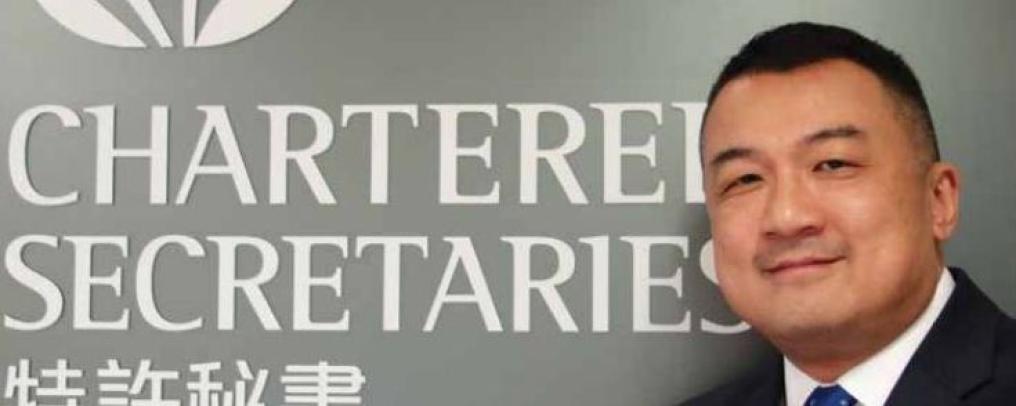China experiments with a liberalised marketplace
Since the global financial crisis, there has been a significant tightening of regulatory controls globally, particularly in the financial sector. In Mainland China, by contrast, the key theme is deregulation. The Institute's latest China Corporate and Regulatory Update seminar, held on 7 January 2014 in Hong Kong, focused on a number of deregulatory reforms in the PRC.
Keeping up with Mainland China's fastchanging corporate and regulatory environment can be quite a challenge for practitioners, but the Institute's China Corporate and Regulatory Update (CCRU) seminar, launched in 2006, certainly helps keep track of this fast-moving scene. The latest CCRU, held on 7 January 2014 in Hong Kong, attracted over 30 attendees, representing both Hong Kong- and Mainland-listed companies. The three speakers at this year's CCRU forum focused on key deregulatory developments in the PRC.
The Shanghai Free Trade Zone
Officially launched on 29 September 2013, the Shanghai Free Trade Zone (FTZ) is China's new vision of a liberalised marketplace open to foreign investment and international trade in both goods and services. In his CCRU presentation, Caesar Wong, Partner, Tax and Business Advisory Services, Deloitte, highlighted the measures in the FTZ designed to loosen restrictions and red tape for foreign companies. Simply put, the establishment of the FTZ is expected to radically change the way foreign companies do business in China:
- investment approval procedures will be simplified
- foreign companies will be allowed to invest in a number of industries currently off limits
- businesses will be able to freely convert renminbi into foreign currencies
- new tax rules will encourage investments
- interest rates will be determined by market forces, not the central bank
- customs supervision procedures will be streamlined, and
- companies in the FTZ will be given 'pre-establishment national treatment’.
Wong also addressed the motives behind the creation of the FTZ. Apart from the desire to test the waters for a broader liberalisation of the country's economic policies, he said that the Shanghai FTZ is also part of the country's overall strategy to counter the Trans-Pacific Partnership (TPP) and the Transatlantic Trade and Investment Partnership (TTIP) led by the US, from which, he said, China had been 'deliberately excluded’.
While the Shanghai FTZ has attracted a lot of attention, Wong pointed out that it is not the country's only experiment in market liberalisation. Hengqin, Qianhai and Nansha, all located in Guangdong Province, have a similar status. In order to attract foreign investment and talent, tax rates for selected companies in the Guangdong FTZs are set at 15 percent instead of the standard 25 percent, Wong pointed out. In addition, Qianhai and Hengqing are offering different Individual Income Tax (IIT) rebates for expatriates working in these areas. In Qianhai, qualified overseas talent or professionals in short supply are entitled to a rebate if the IIT exceeds 15 percent of the taxable employment income. In Hengqing, qualified Hong Kong and Macau residents are also entitled to a rebate if the IIT exceeds the hypothetical individual tax in both SARs.
Wong also looked at China's booming e-commerce sector. Citing Tencent as an example of the immense success of China's e-commerce companies, Wong said some leading Chinese enterprises are ready to branch out abroad as they are running out of room to expand domestically. He emphasised that in the globalised world Chinese companies should also 'improve their physical strengths in order to take on a greater challenge'.
Furthermore, he explained that the high penetration of social media platforms is playing a key role in driving the e-commerce market. Online sales recorded on 11 November 2013 (11 November is Guanggun Jie, the day celebrated by young singles), soared 83 percent to over 35 billion yuan from the same day in the previous year, according to Wong.
Because e-commerce has become a vital tool for small and large businesses in China, not only to sell to customers, but also to engage them, Wong strongly suggested that domestic and foreign companies, especially those with retail business, apply for a third-party payment licence from the People's Bank of China (PBoC). This permission allows nonfinancial institutions to provide payment services including accepting online payments, issuing and accepting prepaid cards, collecting bills via banks cards and other types of payment-related services determined by the PBoC.
He went on to discuss the issuance of the first batch of Mobile Virtual Network Operator (MVNO) licences. The licences were awarded to 11 companies, allowing them to rent wireless capacity from China's existing telecom operators and market their services under their own brands. He also shared briefly his views on China's property cooling measures, and private banks and other financial institutions being allowed to run on a trial basis this year.
Capital market liberalisation in China
Deregulation was also the central theme of the presentation by Dr He Jie, Director of the Shenzhen Stock Exchange Research Institute. He focused his presentation on the ongoing liberalisation of the rules governing capital markets and the financing activities of companies.
He pointed out that capital market liberalisation is structured in three directions – marketisation, internationalisation and enhancement of the legal framework, with marketisation at its core. The overall aim is to 'stimulate the creativity of market players and promote endogenous development of capital markets to enable market forces to determine resource allocation’.
Dr He remarked that the China Securities Regulatory Commission (CSRC) has relaxed the qualification requirements for setting up new branches and trading outlets by securities firms. Moreover, they now enjoy greater flexibility in planning and structuring the businesses, locations and numbers of their branches and trading outlets subject to certain compliance requirements. The CSRC plan also made it easier for securities firms to innovate and diversify into new businesses through deregulation.
Fund management companies (FMCs) have also benefited from similar deregulation. For example, the prohibition on the key shareholder of a domestic FMC company holding more than 49 percent shares has been lifted. FMCs are now permitted to establish subsidiaries to undertake asset management business approved by the CSRC, and are allowed to determine the types and numbers of products at their sole discretion based on market conditions.
On the simplification of the approval process for Initial Public Offerings (IPOs), Dr He remarked that the new rules on the country's IPO system announced by the CSRC in April 2012 were designed to improve the accuracy of information disclosures and make initial pricing more reasonable. The rules were further updated in November 2013.
He also shed light on the government's plans to improve access to the capital market system. In addition to the main boards, companies can seek to raise funds on the SME boards, GEMs (also known as second boards), as well as the proposed over-the-counter (OTC) stock market that aims to offer fresh funding channels to small businesses.
Previously, only unlisted firms in hightech zones in four cities were eligible to raise funds through the national OTC market, called the National Equities Exchange and Quotations System. It was created to help unlisted firms that do not meet listing requirements by letting them raise funds through share sales. It was initially limited to companies registered in a special development zone for high-tech companies and was expanded to firms in high-tech zones in Shanghai, Wuhan and Tianjin in 2012.
Now any joint-stock company that meets certain requirements will be able to apply for the right to transfer shares, obtain equity or debt financing or reorganise its assets through the OTC market. Unlike on the main bourses, which have stricter profit requirements, companies that are not profitable will be eligible for trading on the OTC market. Companies on the OTC market can also apply for a listing on the stock markets once they meet listing requirements.
In addition to reforming the current IPO system and expanding capital-raising channels to lend more support to small businesses, the CSRC has also announced plans to liberalise rules governing mergers and acquisitions (M&A) of listed companies, and encourage the use of preferred shares and M&A funds for investments.
Regarding capital market internationalisation, Dr He looked at the overseas expansion of Chinese securities companies; the relaxation of the rules on foreign investment in domestic securities companies; the expansion in the scope of services to foreign investors and Chinese companies abroad; the opening up of China's capital account via various schemes to allow Hong Kong, Macau and Taiwanese residents to open accounts to trade A shares; and the QDII scheme that allows financial institutions to invest in offshore markets.
He added that qualified overseas individuals working in the Shanghai FTZ will also be allowed to open investment accounts with financial institutions in the Shanghai FTZ to make various inbound investments, including investing in A shares, and even trade domestic energy futures.
Dr He emphasised, however, that a stringent legal framework must be set out in order for market liberalisation and internationalisation to be successful. He therefore went on to discuss the effectiveness of China's recent tightening of rules governing insider trading in the M&A approval process; the auditing standards of IPO candidates; cash dividend requirements in favour of shareholders; and rules to protect the legitimate rights of small investors.
In the final part of his presentation, Dr He addressed the issue of board effectiveness. He noted that low attendance rates of independent directors at board meetings are commonplace and 'a culture of debate' is frequently missing from the board room.
Creating a level playing field
‘Sunlight is said to be the best of disinfectants; electric light the most efficient policeman.’ Professor Liu Junhai from the Law School (and director of Business Law Centre) of Renmin University of China, began his presentation with this famous quote from Louis Brandeis (1856- 1941), an important litigator and Supreme Court Justice of the US.
Throughout his presentation, Professor Liu emphasised that the rule of law is key to market liberalisation, ensuring that every individual or company is entitled to full equality under the law and a level playing field. 'If the constitution is the fundamental law according to which a state is governed,’ he said, 'then the company law is the fundamental law according to which the state's economic activity is governed’.
Professor Liu reviewed some of the important reforms made to China's company law in October 2005, including: reduced and simplified minimum capital requirements; permitting single shareholder limited liability companies; improved public and shareholder access to company information; controls on the abuse of shareholder rights; limitations on third-party loans and guarantees; and legal remedies for improper acts of directors and senior management.
Professor Liu also looked at the revised consumer protection law, which takes effect on 15 March 2014 and was passed by the National People's Congress in October 2013. The key objectives include stiffening the punishments for businesses that mislead shoppers, better regulation of the e-commerce sector, and a strengthening of the role of the China Consumers' Association.
To encourage private investment, an executive meeting of the State Council led by Premier Li Keqiang in October 2013 unveiled an unprecedented reform to China's company registration system. Professor Liu remarked that this reform aims to create fair competition and support smaller businesses, especially innovative enterprises, by establishing a transparent and efficient modern company registration system.
Professor Liu believes that the renewed consumer protection rules are designed to improve consumer confidence, while the company registration reform will encourage investment in the private sector. These two key initiatives, complementing each other, will foster a virtuous cycle and wealth effect by encouraging people to spend and invest, thereby helping China to counter economic slowdown, he said.
Jimmy Chow, Journalist
For information on the Institute's CPD events, visit the 'ECPD' section of the Institute's website: www.hkics.org.hk.
中國為新一輪改革開放探路
自全球金融危機以來,多個國家相繼加大了 對市場的監管力度,尤其是金融業的監管。 相反,這幾年中國經濟發展的關鍵字依然是 市場自由化。公會最近主辦的中國企業規管 最新發展研討會(CCRU),於2014年1月7日 在港召開,國家近年多項市場自由化的改革 舉措,成為了這次研討會的焦點。
對公司秘書和合規負責人員而言, 要緊貼內地時刻變化的企業运营 和監管環境,談何容易。有見及此, 公會自2006年起,每年都會舉辦中國 企業規管最新發展研討會(CCRU), 旨在為會員提供內地最新之行業法規 及監管信息。今年的CCRU於1月7日在 香港舉行,逾三十位來自香港和中國 內地上市企業的代表參與了是次研討 會,而演講嘉賓的研討主題都離不開 市場自由化的實踐。
上海自由貿易區
2013年9月29日,上海自由貿易區(上 海自貿區)正式啟動,肩負探索中國 改革開放之路的使命,進一步推進中 國商品與服務對外資及國際貿易的全 面開放。德勤中國合伙人黃信安先生 在演講中強調,自貿區設立的目的, 是為了讓投資和貿易更自由化,以及 簡化外國投資者的審批程序。一言蔽 之,上海自貿區將徹底改變外資在華 營商的舊有模式,具體目的如下:
- 簡化投資審批程序
- 允許有限的外國公司投資於新的 經濟領域
- 企業將能自由地將人民幣兌換成 外幣
- 引入新征稅規則,鼓勵投資 • 利率將由市場力量決定,而非央 行
- 簡化清關程序
- 自貿區內外商享有准入前國民待 遇
黃先生續說,上海自貿區設立的目 的,除實現貿易自由化外,某種程度 上是為了抗衡以美國為首之《跨太 平洋夥伴關係協定》(TPP)及《跨大西洋貿易和投資夥伴關係協定》 (TTIP)。他認為,中國是遭到刻意 孤立,才沒被邀請參與TPP談判。
上海自貿區固然是鎂光燈的焦點,但 他補充,廣東橫琴、前海及南沙等 新區同樣發揮類似自貿區的「境內關 外」作用。例如,三個新區對合資格 企業將按15%的優惠稅率征收企業所得 稅,而不是國內標準25%稅率。在前海 新區,境外高端和緊缺人才,將享受 15%個人所得稅優惠。在橫琴新區,合 資格港澳居民,同樣享有該15%個人所 得稅優惠。
黃先生還討論了中國蓬勃發展的電子 商務。他以騰訊作例,指出一些具領 導地位的企業正積極「走出去」,並 說在市場全球化的環境下,國內企業 更有需要「把身體練好,準備迎接更 大的挑戰」。他解釋,社交平台的高 滲透率,是推動電子商務高速發展的 關鍵所在。去年11月11日中國的「光 棍節」,網上銷售金額便突破了350 億元人民幣,比前一年同日大幅上升 83%。
電子商務不僅成為了大小企業不可或 缺的銷售渠道,企業還可通過社交媒 體留住客戶群。正因為此,黃先生建 議,無論是本地還是外資企業,特別 是經營零售業務的,應盡最大努力, 向中國人民銀行申請《第三方支付業 務許可證》。《第三方支付業務許可 證》允許非金融機構利用交易支持平 台,向其客戶提供個性化支付結算與 增值服務。
在演講中,黃先生還提及中國去年向 11家民營企業首发虚拟运营商牌照。 獲發牌的企業,可通過租賃基礎電信 營運商網絡的方式,向其客戶提供其 品牌的電信業務和服務。其他的討論 議題包括:房地產市場調控措施,以 及今年首批民營銀行試點名單上報一 事等。
中國資本市場自由化
深圳證券交易所綜合研究所所長何杰 博士具體論述了中國資本市場邁向自 由化的進程。在演講中,他就目前資 本市場自由化的最新發展,以及拓寬 民企融資渠道的有關政策,作了較深 入的分析。
何博士解釋,資本市場改革分三軌進 行,分別是資本市場的市場化、國際化 和法治化,其中「三化」的核心是市場 化,旨在「激發市場主體的創造力,增 強資本市場發展的內生動力,使市場在 資源配置中起決定性作用」。
他續說,中國證監會去年放開了分支 機構設立的主體資格限制、地域限 制、數量限制,並指示公司應結合自 身實際及發展戰略、業務類型和實際 管理能力,審慎決定設立和佈局。證 監會的新措施,也有助於證券公司推 進產品、交易機制及技術創新。
對於基金管理公司,證監會也取消了 內資基金公司主要股東持股比例不超 過49%的規定;獲證監會准許後,基金 公司可在境內設立子公司從事資產管 理業務,並可根據市場情況,自主決 定產品種類及數目。
在簡化首次公開發行(IPO)審核過 程方面,據何博士介紹,證監會已於2012年4月發布《關於進一步深化新股 發行體制改革的指導意見》,目的是提 升信息披露的準確性,同時令新股定價 更加合理。其後,證監會優化了相關措 施,並於2013年11月發布《關於進一步 推進新股發行體制改革的意見》。
何博士還就中央政府加快發展多層次 資本市場的計划作了深入探討。為向 不同發展階段的企業提供更多元化的 融資渠道,《中國共產黨十八屆三中 全會全面深化改革決定》提出建構一 個健全、多層次的資本市場體系。除 了主板,企業的融資渠道將包括中小 板、創業板(或稱二板市場),及建 議的場外交易市場,從而為小微企業 提供融資新渠道。
此前,只有在四個指定城市高新區的 非上市公司,才能通過全國場外交易 市場籌集資金,此交易系統稱之為全 國中小企業股份轉讓系統(簡稱全國 股轉系統)。其原意是讓未符合上市 資格的中小企業,通過在這個全國場 外交易市場掛牌以籌集所需資金。全 國股轉系統原來只限於高新區註冊的 公司,後來於2012年擴展至上海、武 漢、天津等多個高新區。
今後,任何一家符合要求的股份制公 司,都可以通過這個場外交易市場, 進行股權轉讓、購買股權、債務融資 或重組資產等融資活動。跟主板的要 求不同,沒有盈利记錄的公司,一樣 可在這個俗稱新三板的市場掛牌。
除了改革現行新股發行制度、擴寬中 小企業之融資渠道外,證監會還宣布 了放寬規管上市公司併購的規則,並 鼓勵企業利用從發行優先股和併購所 得的資金,進行投資活動。
就資本市場國際化,何博士扼要講解 了一系列的政府舉措,如何幫助中國 證券公司「走出去」;放寬外資參股 券商的要求,把機構「引進來」;擴大本地金融機構對在華外資及海外中 國企業所提供的金融服務;進一步開 放中國的資本賬戶,容許港澳台胞開 戶買賣A股;以及通過QDII制度,容許 中國金融機構投資到海外市場。
何博士補充,在上海自貿區工作的合 資格境外人士,可在金融機構開戶買 賣A股、甚至買賣國內的能源期貨。
他強調,資本市場的法治化,是資本 市場自由化和國際化的成功基石。然 後,他跟大家探討了并購重組相關的 內幕交易監管措施;IPO財務核查;強 化股東回報的新措施;以及保障中小 投資者合法權益的新「國九條」。
在演講末段,何博士指出了一些內地上 市公司企業管治的常見問題,例如,獨 立董事出席率長期偏低;以及上市公司 董事會會議呈現嚴重的形式化,沒有真 正形成辯論說服的董事會文化。
創造公平競爭環境
在演講開始時,中國人民大學商法研究 所所長、中國人民大學法學院教授兼博 士生導師劉俊海借用了美國知名律師 兼最高法院大法官路易斯‧布蘭戴斯 (1856-1941)的經典名言:「陽光是 最好的防腐劑,燈光是最好的警察」。
演講期間,劉教授多次強調,法治是 市場自由化的基本要素,保障所有個人 和企業在法律面前享有平等權利,公平 競爭。他鏗鏘有力的說道:「如果說憲 法是政治生活的根本大法,那麼公司法 則是經濟生活中的根本大法。」
其後,劉教授就在2005年經重新修 訂的《公司法》中的一些主要改革內 容作深入分析,包括:放寬和簡化最 低資本註冊的條件及要求;允許單一 股東註冊有限責任公司(俗稱一人公 司);完善公司登記信息查詢制度, 增加對公眾及股東的透明度;控制股 東濫用控制權行為;對公司給予董事貸款及貸款擔保之限制;以及因應董 事、監事及高級管理人不當行為,公 司應當採取的補救措施。
除了對「新公司法」詳加說明外,劉 教授還提到於2014年3月15日生效的 新《消費者權益保護法》。該法案於 2013年10月由人大通過,主要目的是 加強懲罰誤導消費者的企業、更有效 管理電子商務活動、加強了中國消費 者協會的角色等。
為鼓勵民間投資,國務院總理李克強 於10月25日主持召開國務院常務會 議,宣布推進公司註冊資本登記制度 改革,降低創業成本。劉教授指出, 改革註冊資本登記制度,目的是推進 建立高效、透明、公正的現代公司登 記制度,最終目的是營造出公平的競 爭環境,以及促進小微企業特別是創 新型企業成長。
劉教授相信,新《消費者權益保護 法》和公司註冊資本登記制度改革兩 者存在相輔相承的關係,前者加強消 費者信心,後者激發投資活力,齊驅 並駕,能促進經濟良性循環,產生財 富效應,鼓勵人們消費和投資,為中 國經濟增長注入新動力。
Jimmy Chow, 記者
欲查詢公會持續專業發展活動(CPD) 之詳細信息,請 浏 览 以下網址: www.hkics.org.hk


